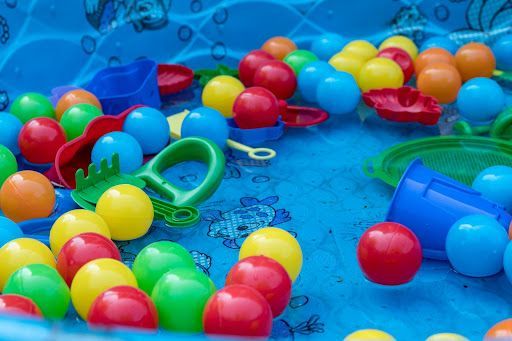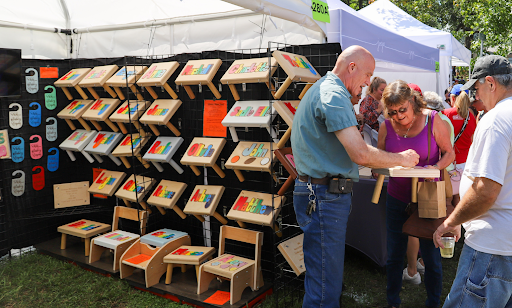The Environmental Impact of Toys
As parents, we all want the best for our children, including the toys we give them to play with. However, have you ever considered the environmental impact of the toys you purchase? From the materials used to the manufacturing process, the environmental impact of toys can be significant. In this blog post, we’ll explore the environmental impact of toys and why handmade wooden toys are a great alternative.
Plastic Toys
The majority of toys on the market today are made of plastic. Unfortunately, plastic is one of the most harmful materials to the environment. Plastic toys are often cheaply made and last briefly, contributing to our growing waste problem. In addition, plastic takes hundreds of years to decompose, meaning plastic toys will sit in landfills for generations.
Electronic Toys
Electronic toys are another popular option for children. While they may be fun to play with, electronic toys often require batteries, which are costly and harmful to the environment. Batteries contain toxic chemicals that can leak into the soil and water supply, contaminating our ecosystem. Battery-operated toys can end up in a landfill if parents throw them out when they realize they are out of batteries and would instead buy a new toy for their child than replace the batteries. Furthermore, electronic toys are often made of plastic and other non-renewable materials, making them less sustainable than wooden toys.

Wooden Toys
In contrast to plastic and electronic toys, wooden toys are made from natural materials that are biodegradable and renewable. Wooden toys are often handmade, ensuring they are high quality and designed to last. In addition, wooden toys can be passed down from generation to generation, reducing the need to purchase new toys constantly.
Overconsumption
One of the biggest problems with toys today is overconsumption . Parents are often pressured to buy the latest and greatest toys for their children, leading to an excess of toys in households. This overconsumption contributes to our waste problem and encourages a culture of materialism and consumerism. Parents can teach their children to value quality over quantity and appreciate the beauty of simple, well-crafted toys by opting for handmade wooden toys.
Multi-Use Toys
Another great benefit of handmade wooden toys is their versatility. Wooden blocks, for example, can be used in various ways, from building towers to creating imaginary worlds. Similarly, wooden cars and trains can be used for play and decoration, adding a touch of warmth and charm to a child’s room. Puzzles can serve as educational tools and decorations. By investing in multi-use toys, parents can reduce the need for multiple toys and encourage creativity and imagination in their children.
Passing Toys Down in the Family
Handmade wooden toys are often designed to last for generations, making them the perfect toy to pass down from one child to another. By passing toys down in the family, parents can reduce the need for new toys and create a sense of community and tradition within the family. In addition, passing toys down can teach children to appreciate and care for their belongings, reducing the likelihood of toys ending up in landfills.

Buying Local
Finally, buying handmade wooden toys from local artisans can positively impact the environment and the local economy. By supporting local artisans , parents can reduce the environmental impact of shipping and transportation while also contributing to the growth of their community. Furthermore, buying locally can help ensure that toys are made ethically and sustainably, reducing the likelihood of harmful chemicals and practices used in manufacturing.
In conclusion, the environmental impact of toys is a growing concern that all parents should be aware of. Parents can reduce their environmental footprint by opting for handmade wooden toys while teaching their children the value of quality, simplicity, and sustainability. By investing in toys designed to last, parents can reduce the need for constant consumption and create a more mindful and intentional approach to playtime.
Check out Hollow Woodworks
At Hollow Woodworks, all our toys are handcrafted by our team located in Ferguson, MO. We have a variety of wooden puzzles, toys, and keepsakes that you won’t want to miss. We’ve been making puzzles for over 37 years and have made over 350,000 puzzle stools (our signature product). Contact us today and visit our online store!
The post The Environmental Impact of Toys appeared first on Hollow Woodworks.




